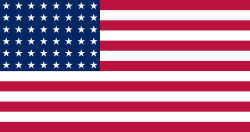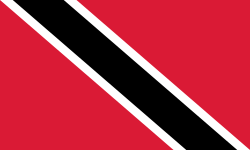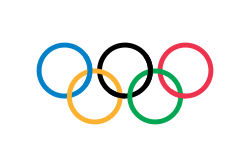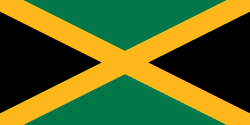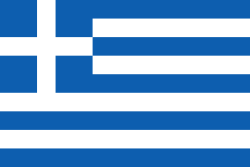Percy Williams
| Percy Williams | |
|---|---|
 | |
| Narození | 19. května 1908 Vancouver |
| Úmrtí | 29. listopadu 1982 (ve věku 74 let) Vancouver |
| Příčina úmrtí | střelná rána |
| Povolání | pojišťovací agent, sprinter a pilot |
| Ocenění | důstojník Řádu Kanady Kanadská sportovní síň slávy |
| Některá data mohou pocházet z datové položky. | |
| Přehled medailí | ||
|---|---|---|
| zlato | Amsterdam 1928 | běh na 100 m |
| zlato | Amsterdam 1928 | běh na 200 m |
Percy Alfred Williams (19. května 1908 Vancouver – 29. listopadu 1982 Vancouver) byl kanadský atlet, sprinter, dvojnásobný olympijský vítěz.
Sportovní kariéra
Před olympiádou v Amsterdamu v roce 1928 nečekaně zvítězil v kanadské olympijské kvalifikaci. Na olympiádě snadno postoupil do finále běhu na 100 metrů, ve kterém zvítězil díky dobrému startu. Tento úspěch zopakoval i v běhu na 200 metrů.
V roce 1930 na pozvání atletických funkcionářů z USA startoval na sérii halových závodů, 19 z celkového počtu 21 vyhrál. Ve stejném roce vyrovnal světový rekord na 100 metrů časem 10,3 s.[1] Po následném zranění se už nedostal do dřívější formy. Startoval na olympiádě v Los Angeles v roce 1932, kde nepostoupil ze semifinále běhu na 100 metrů. Štafeta Kanady na 4 x 100 metrů, jejímž byl členem, doběhla na čtvrtém místě. Krátce po této olympiádě ukončil svoji sportovní kariéru.
Odkazy
Reference
- ↑ World Records Progression – 100 Meters (Men) [online]. Trackfield.brinkster.net. Dostupné online. (anglicky)
Externí odkazy
 Obrázky, zvuky či videa k tématu Percy Williams na Wikimedia Commons
Obrázky, zvuky či videa k tématu Percy Williams na Wikimedia Commons - Percy Williams v databázi Olympedia (anglicky)
Média použitá na této stránce
Olympic Rings without "rims" (gaps between the rings), As used, eg. in the logos of the 2008 and 2016 Olympics. The colour scheme applied here was specified in 2023 guidelines.
Olympic Rings without "rims" (gaps between the rings), As used, eg. in the logos of the 2008 and 2016 Olympics. The colour scheme applied here was specified in 2023 guidelines.
US Flag with 44 stars. In use 4 July 1891–3 July 1896. Created by jacobolus using Adobe Illustrator, and released into the public domain.
US Flag with 44 stars. In use 4 July 1891–3 July 1896. Created by jacobolus using Adobe Illustrator, and released into the public domain.
US Flag with 45 stars. In use 4 July 1896–3 July 1908. Created by jacobolus using Adobe Illustrator, and released into the public domain. This flag was used during the Spanish-American War.
US Flag with 45 stars. In use 4 July 1896–3 July 1908. Created by jacobolus using Adobe Illustrator, and released into the public domain. This flag was used during the Spanish-American War.
US Flag with 46 stars. In use 4 July 1908–3 July 1912. Created by jacobolus using Adobe Illustrator, and released into the public domain.
Other version: Image:US 46 Star Flag.svgUS Flag with 46 stars. In use 4 July 1908–3 July 1912. Created by jacobolus using Adobe Illustrator, and released into the public domain.
Other version: Image:US 46 Star Flag.svgUS Flag with 48 stars. In use for 47 years from July 4, 1912, to July 3, 1959.
The Canadian Red Ensign used between 1921 and 1957.
This image has compared for accuracy (mainly colors) using an image from World Statesmen. The only change is making the maple leaves green from red. This image has compared for accuracy (mainly colors) using an image from World Statesmen. The most recent version of this image has changed the harp into one with a female figure; see [http://flagspot.net/flags/ca-1921.html FOTW
Flag of the unified Team of Germany for the Olympic Games, 1960–1968.
(c) I, Cmapm, CC BY-SA 3.0
The flag of the Soviet Union (1955-1991) using a darker shade of red.

(c) I, Cmapm, CC BY-SA 3.0
The flag of the Soviet Union (1955-1991) using a darker shade of red.

Olympijská vlajka
Flag of Jamaica. “The sunshine, the land is green, and the people are strong and bold” is the symbolism of the colours of the flag. GOLD represents the natural wealth and beauty of sunlight; GREEN represents hope and agricultural resources; BLACK represents the strength and creativity of the people. The original symbolism, however, was "Hardships there are, but the land is green, and the sun shineth", where BLACK represented the hardships being faced.
Sport. Olympische Spelen 1928 Amsterdam, Nederland : De Canadees Percy Williams, die zowel de 100 meter als de 200 meter hardlopen won.





